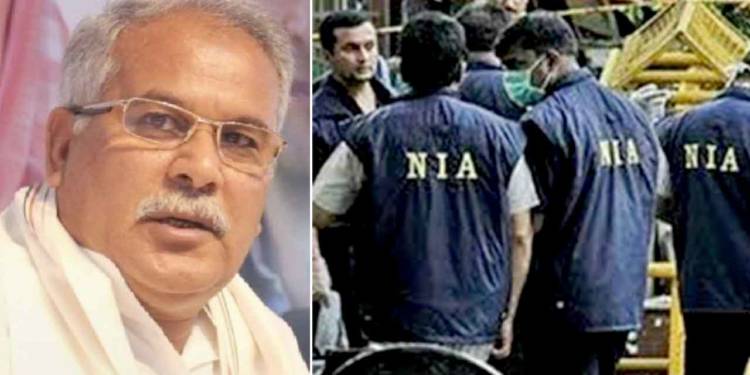In a shocking development, the Congress-led Chhattisgarh government has moved the Supreme Court under Article 131 seeking to declare the National Investigation Agency (NIA) Act of 2008 arbitrary and unconstitutional. Article 131 confers original jurisdiction upon the apex court to decide disputes between the Centre and State(s).
The Congress-led Chhattisgarh government has contended that ‘police’ is a State power, and crimes committed within the jurisdiction of a State essentially fall under the investigative jurisdiction of the State Police. It had further contended that the Centre cannot usurp the powers of the State Police forces, through the NIA.
There are conflicting judicial pronouncements from coordinate Supreme Court benches on whether the constitutional validity of a Central legislation can be challenged by a State under the provisions of Article 131. Therefore, it is not clear if the suit filed by the Congress-led Chhattisgarh government will be even maintainable when it comes up for hearing.
However, this move by Chhattisgarh government makes it clear that the Congress-led government is shielding Naxal ambitions in the Naxal hit State by challenging the validity of the NIA Act which can bring the very existence of the top anti-terror probe agency under threat.
What the Chhattisgarh government has challenged is not the 2019 Amendment but the 2008 Act itself, which was ironically brought in by the former Congress government. Therefore, the Congress-led government is now looking to destroy the very basis of the NIA, which was established by the Congress-led UPA government itself as the Central Counter-Terrorism Law Enforcement Agency.
The NIA has played a crucial role in tackling Naxalism. The premier anti-terror probe agency also forms a crucial part of the Modi government’s strategy to choke Naxal funding. In 2028, an MHA official had said that a separate vertical was being created within the NIA for investigating important Left Wing Extremism (LWE) cases.
The NIA has also played a crucial role in unearthing the nexus between Urban Naxals and their Guerrilla counterparts. Within Chhattisgarh too, the NIA has played an instrumental role in tackling Naxalism. Last year, a special NIA court in Chhattisgarh had awarded 10-year sentences to five Naxal sympathisers for acting as couriers and supplying explosives, ration to them.
In fact, such has been the role of NIA that after the 2013 Naxal attack on Congress leaders in Chhattisgarh, the then Union Home Minister, Sushilkumar Shinde, had said, “I have spoken to Raman Singh (then Chhattisgarh CM) and he has agreed for probe by NIA and he has agreed to the probe by the central agency.” The Congress too trusted the NIA, and placed greater reliance on the anti-terror probe agency when it came to investigating a Naxal attack.
Therefore, challenging the Act that establishes the NIA clearly amounts to an attempt to impair the onslaught against Naxalism.




























